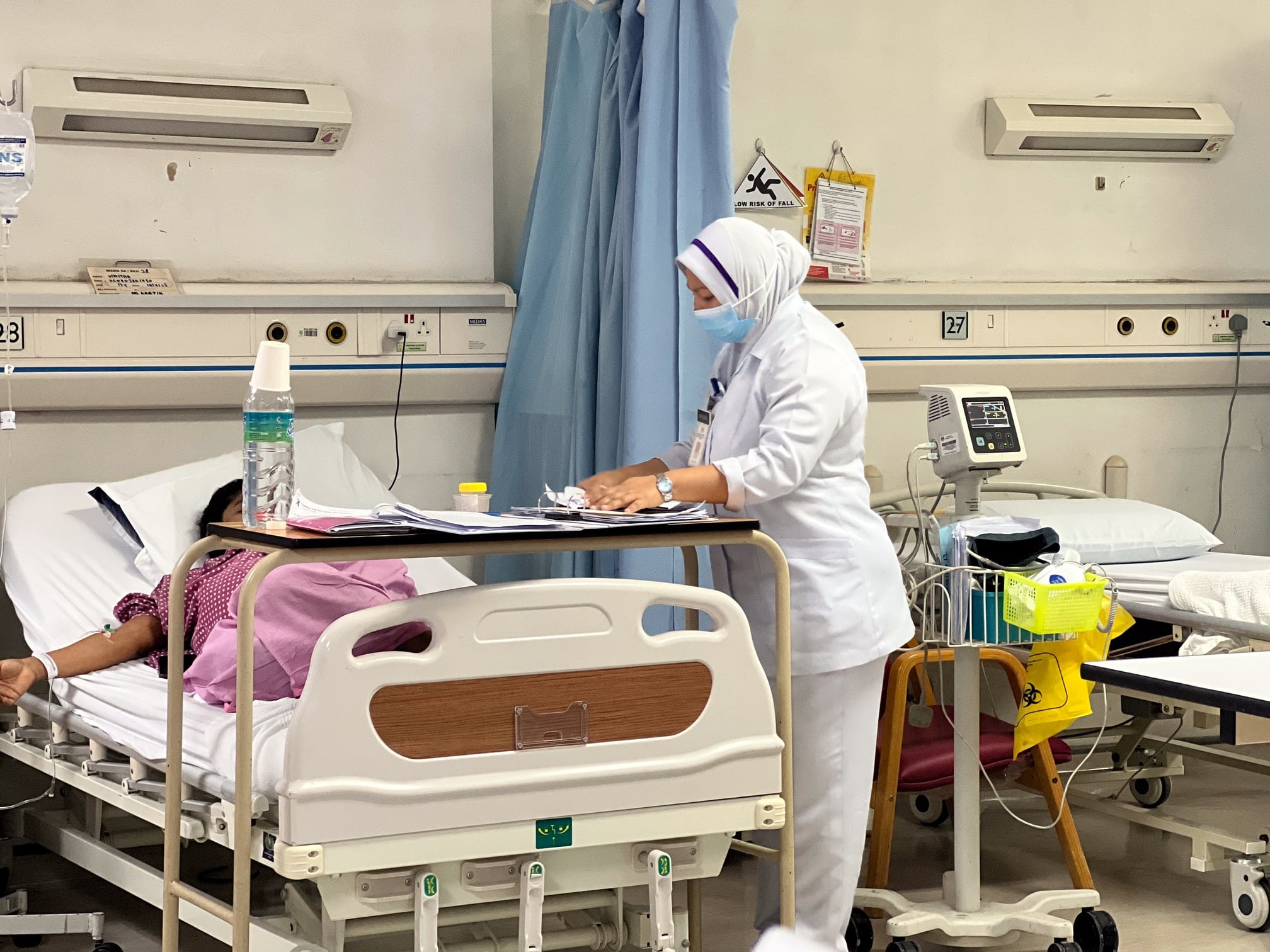I am a former matron with over 20 years of experience working in both government and private hospitals in Malaysia. Currently, I serve as a lecturer at the Department of Nursing, School of Medical and Life Sciences, Sunway University.
This institution is affiliated with Sunway Medical Centres throughout Malaysia. Given my extensive background, I bring a deep understanding of our health care system and its intricacies.
Nurses trained in Malaysia are highly recognised and sought after worldwide. Notably, they are often selected to work abroad by hospital management in countries like Saudi Arabia and Singapore.
This demand has led to a significant shortage of nurses within Malaysia.
For instance, in 2021, there were 113,787 registered nurses, resulting in a nurse-to-population ratio of 1:454. This is considerably less than the 1:300 nurse-to-population ratio recommended by the World Health Organization (WHO).
To address this deficit, the Health Ministry’s recent decision to exempt foreign nurses from the need to obtain a Post-Basic Qualification to work in private hospitals is both apt and timely.
However, as we look forward to a massive recruitment of foreign nurses into the Malaysian health care system, detailed strategies and comprehensive planning are imperative to address potential challenges.
WHO Global Code of Practice on the International Recruitment of Health Personnel
The WHO formulated the Global Code of Practice on the International Recruitment of Health Personnel to address the complexities and challenges arising from the international migration of health workers.
The primary goal of this code is to establish and promote voluntary principles and practices for the ethical international recruitment of health personnel and to facilitate the strengthening of health systems.
The code provides guidance at global, regional, and country levels to address health workforce retention in the source countries, while ensuring that rights of migrant health personnel are not compromised.
It underscores the importance of health systems strengthening as a means to address the push factors that drive migration.
One of the primary tenets of the code is the promotion of ethical recruitment practices. It emphasises mutual benefits for both source and destination countries and ensures that recruitment doesn’t exacerbate the health workforce shortages in the countries of origin.
It further advocates for equal treatment and non-discrimination against international recruits, ensuring their rights, salaries, and working conditions are at par with domestically-trained health personnel.
An underlying principle of the code is the recognition that strengthening health systems and educational infrastructure in source countries can reduce the push factors leading to the migration of health personnel.
It encourages destination countries to support these efforts, including through financial aid, capacity-building, and the exchange of knowledge and skills.
Given this comprehensive framework, Malaysia’s Health Ministry would benefit from adopting and integrating the principles and guidelines of the WHO Global Code into its recruitment strategies.
Aligning with this code will ensure that Malaysia’s health system not only benefits from the skills and expertise of foreign-trained health workers, but also contributes to a global framework that upholds the rights and interests of all health personnel, regardless of their country of origin.
Standardised Nursing Recruitment Regulations
The Malaysian Nursing Board has a crucial responsibility in setting stringent regulations for recruiting foreign-trained nurses. The nursing education and practices they have received should be equivalent to, if not exceed, Malaysian standards.
Nurses without specialised post-basic qualifications will be stationed in general Medical-Surgical departments or other areas not demanding specific expertise. Regular oversight is vital to ensure health organisations adhere to these recruitment guidelines.
To ensure the continued high standards of health care in Malaysia, all foreign-trained nurses must have relevant clinical nursing experience within the last five years from their home country.
Furthermore, they must successfully pass the Malaysian Nursing Board (MNB) Licensure Exam to secure an MNB license, which is a prerequisite for practicing in Malaysia.
Training Development Programme for Incoming Foreign Nurses
It is essential to introduce a structured short-course training programme for newly recruited foreign-trained nurses before their placement in hospitals.
This programme should gauge and enhance their knowledge and skillsets.
Given that language and cultural differences could pose challenges, all newly recruited foreign-trained nurses should undergo comprehensive training to acquaint them with Malaysian and international languages and cultural norms.
Collaborative educational partnerships with their home countries could also be considered to streamline this training.
Comprehensive Care on Well-Being, Safety, and Comfort for Foreign Nurses
Beyond recruiting foreign nurses, health care organisations must prioritise their well-being, safety, and living comfort.
This includes providing competitive salaries, medical insurance, accommodations, and annual trips home.
By offering incentives like the possibility of long-term residency for exceptional service, Malaysia can attract and retain a larger number of foreign-trained nurses in the long run.
Final Thoughts
Given the current nursing shortage in Malaysia, it’s imperative for the Ministry of Health and other health organisations to consider revising the base salaries of local nurses.
By offering competitive salaries and benefits, the government can incentivise foreign nurses to provide their invaluable services in Malaysia.
While efforts to augment the health care workforce are commendable, it’s essential to remember that the focus should always be on the quality of care, and not merely on numbers.
Norsalawati Ismail is a lecturer at the Department of Nursing, School of Medical and Life Sciences, Sunway University.
- This is the personal opinion of the writer or publication and does not necessarily represent the views of CodeBlue.




